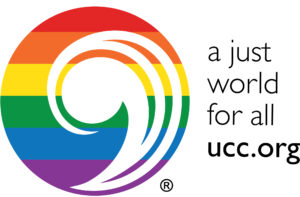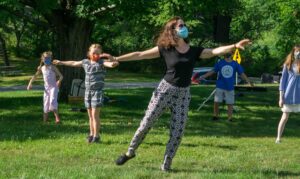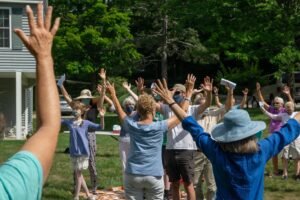 life’s big questions with evangelicals, and seekers from a wide range of denominational and religious backgrounds. We believe that God stirs in the midst of our questions, in the push and pull of conversation and struggle. And Jesus comes to life through relationships of care, compassion and respect. What emerges is a community committed to justice and peace, growing in spirit and grace through life’s many seasons. God is good! All the time!
life’s big questions with evangelicals, and seekers from a wide range of denominational and religious backgrounds. We believe that God stirs in the midst of our questions, in the push and pull of conversation and struggle. And Jesus comes to life through relationships of care, compassion and respect. What emerges is a community committed to justice and peace, growing in spirit and grace through life’s many seasons. God is good! All the time! ordain LGBTQ members as ministers. Our community is a vibrant and diverse circle: we love in different ways, our families gather at different tables; but we are united in love for one another and in the conviction that Jesus calls us to compassion, deep respect and collaboration. At the Community Church, it’s our privilege to celebrate weddings of all kinds, and each couple brings a sacred spirit of care and hope to us8
ordain LGBTQ members as ministers. Our community is a vibrant and diverse circle: we love in different ways, our families gather at different tables; but we are united in love for one another and in the conviction that Jesus calls us to compassion, deep respect and collaboration. At the Community Church, it’s our privilege to celebrate weddings of all kinds, and each couple brings a sacred spirit of care and hope to us8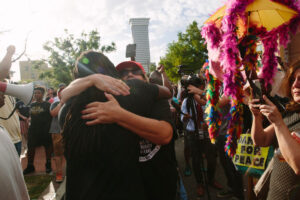
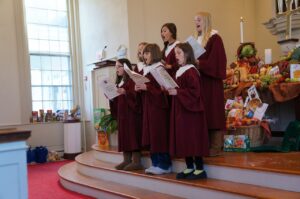

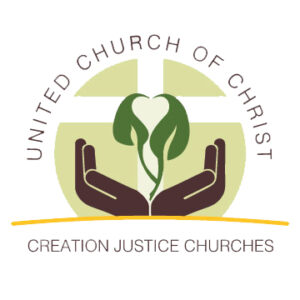 ecological concerns close to home in New Hampshire. The earth is our common home, a communion of God’s many beings and cultures; and our faith insists that ecological justice is deeply connected to issues of economic and racial justice and concerns for world-wide peace. We recognize these are all daunting challenges in 2023–but we’re determined to make common cause with all kinds of religious partners and academic and secular friends as well. We bring these commitments into our weekly worship practice; and we’re always learning from our youngest members, whose passion for the planet is a shining example of what we can be. We’re all in this together!
ecological concerns close to home in New Hampshire. The earth is our common home, a communion of God’s many beings and cultures; and our faith insists that ecological justice is deeply connected to issues of economic and racial justice and concerns for world-wide peace. We recognize these are all daunting challenges in 2023–but we’re determined to make common cause with all kinds of religious partners and academic and secular friends as well. We bring these commitments into our weekly worship practice; and we’re always learning from our youngest members, whose passion for the planet is a shining example of what we can be. We’re all in this together!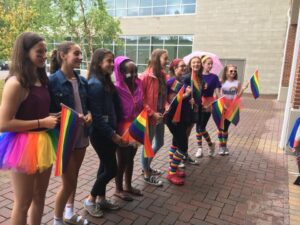
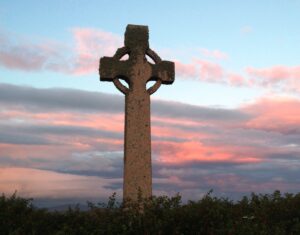
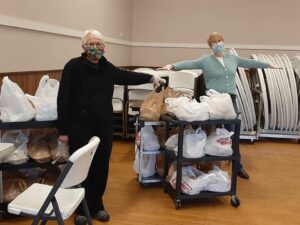
The Community Church of Durham, which changed its name in 1923 from “Congregational Society in Durham,” is a congregation of the United Church of Christ. Its actual founding was in 1718, but its roots go back to 1651. That was when the town of Dover, of which the sprawling settlement along Oyster River was then a part, voted to support a minister there in addition to the one already installed at Dover Point. In 1655, Valentine Hill, a prominent settler, built a meetinghouse on the south side of the river about halfway between the falls and what is now called Durham Point. There followed a long period of spotty ministerial services but no organized church, featuring for much of that time an unordained preacher and physician named John Buss.
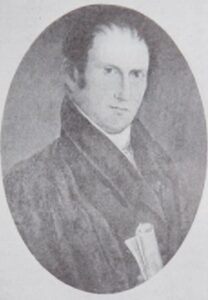
The Rev. Federal Burt
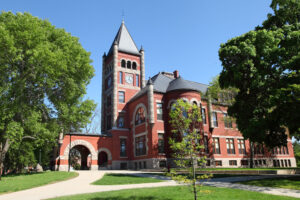
UNH: Thompson Hall
The new name not only reflected the diverse denominational backgrounds of students, faculty, and staff members from various parts of the country who were now making the Durham church their church, but emphasized anew its assumptions of community service and leadership. Since then, the church’s ties with the university have profoundly affected the congregation in its heterogeneity, its programs, and its discussion of social and religious concerns. A similar force for diversity and adaptation has been the movement into Durham over several recent decades of business and professional families without university connections but from equally varied regional and denominational backgrounds.
In 1961, the same year the decision was made to go ahead with the education building, the church voted to become a member of the United Church of Christ, a merger of the Congregational-Christian and Evangelical and Reformed churches, approved by both denominations at their national meetings on July 25, 1957. The same year the Durham church became one of the first in the state to sign on to the merger, the New Hampshire Congregational-Christian Conference decided to become a state UCC conference. Many local churches in the state dragged their heels, worrying about compromising congregational autonomy, but eventually 90 percent of the Congregational-Christian churches in New Hampshire followed Durham’s early lead by becoming members of the UCC.
Another landmark year was 1976, when the church responded to a generous bequest by remodeling the sanctuary a third time, installing a concert-quality organ as a community as well as a congregational resource, establishing a significant fund for mission and outreach, and providing the land for the construction of the Church Hill Apartments for the elderly. In a nod, at least, to a growing ecumenical consciousness, the remodeling of the sanctuary resulted for the first time in a divided chancel centered on the Communion table rather than the pulpit-centered arrangement that had been in place in a variety of forms for 128 years. In addition to its other outreach programs, including making its facilities available to community organizations and activities of many kinds including a church-sponsored Boy Scout troop, the church has taken a leading role in encouraging and supporting the evolving forms of a Protestant ministry (and briefly an ecumenical ministry) to UNH students.
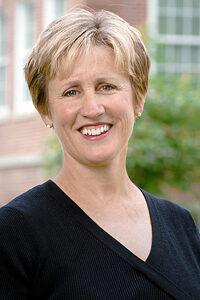
The Rev. Dr. Mary Westfall

